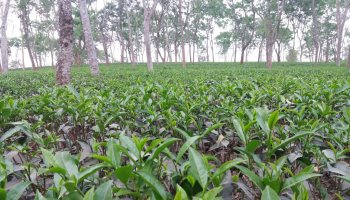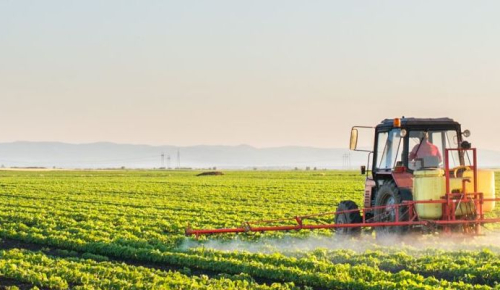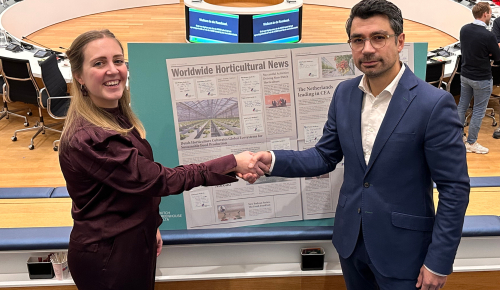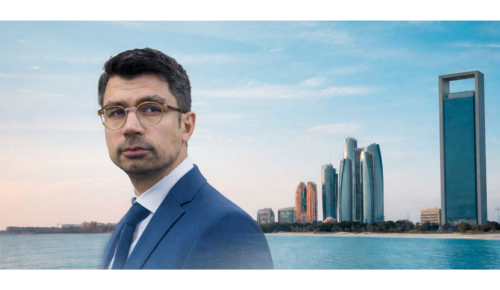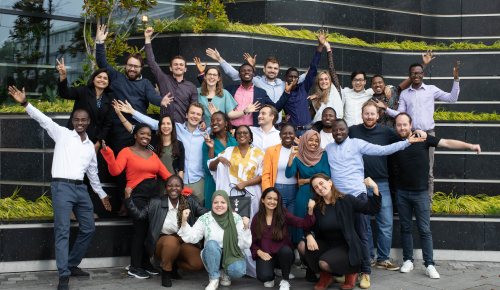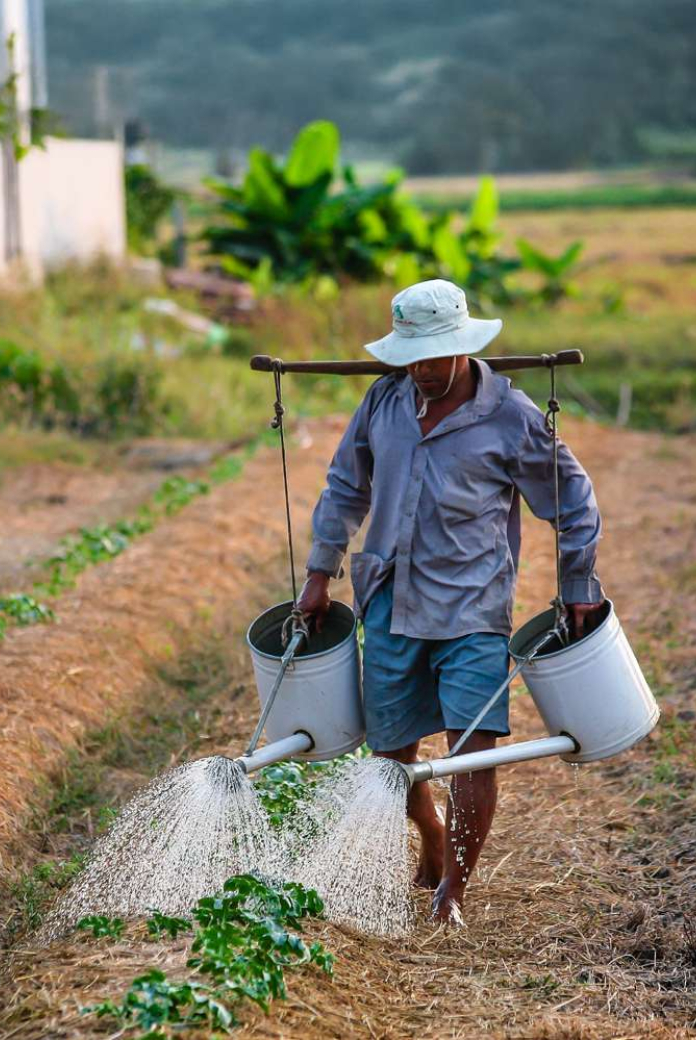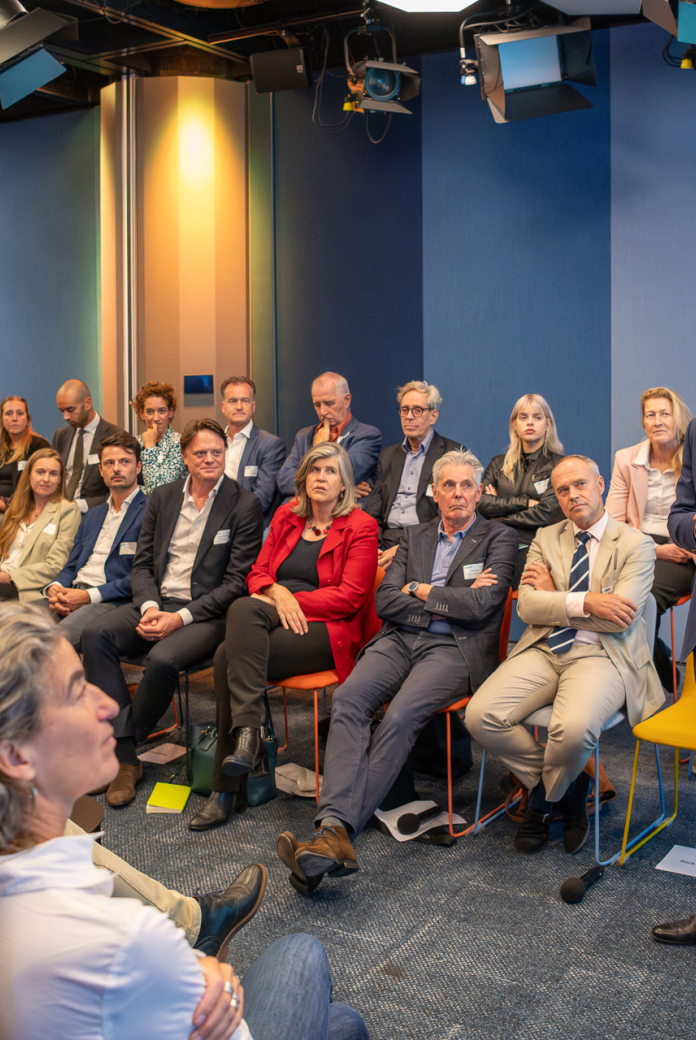News
6 November 2023Water for Food Programme gives training course on saline agriculture in Bangladesh
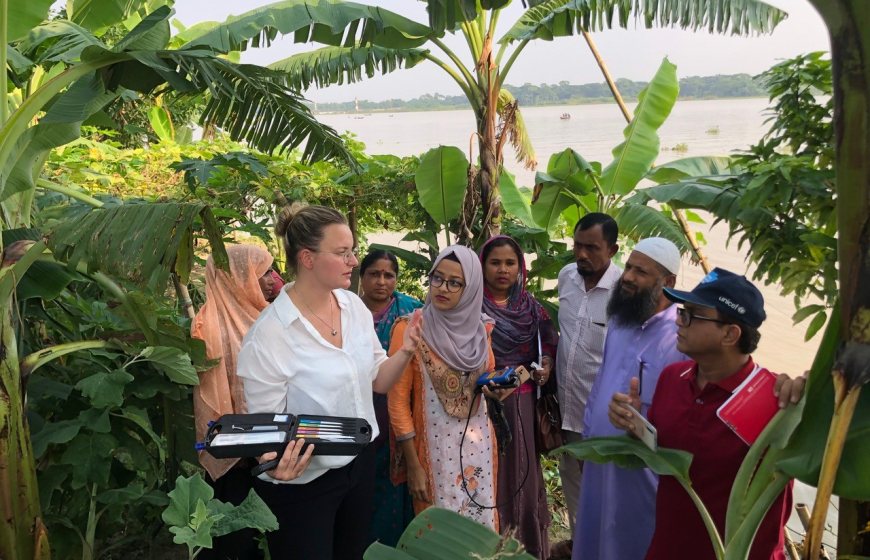

Last month, about 25 farmers’ leaders from Bangladesh received a training course on saline agriculture, as part of Netherlands Water Partnership's Water for Food Programme. This programme aims to improve food security and sustainable water use in the agrifood domain through public-private partnerships.
Farmers in the coastal areas of Bangladesh face severe damage caused by saltwater intrusion or the lack of fresh water in the dry season. Yields are low, and the land is even left fallow when the fields are too saline. In the course, Netherlands Water Partnership introduced good practices and tools to deal with salinity. Classroom sessions were combined with group assignments and field training. With the knowledge they gain, farmers can reduce the impact of salinity on their crops and yields. One of the options discussed in the course for generating an income in the dry season, is to grow salt tolerant potato and vegetable varieties.
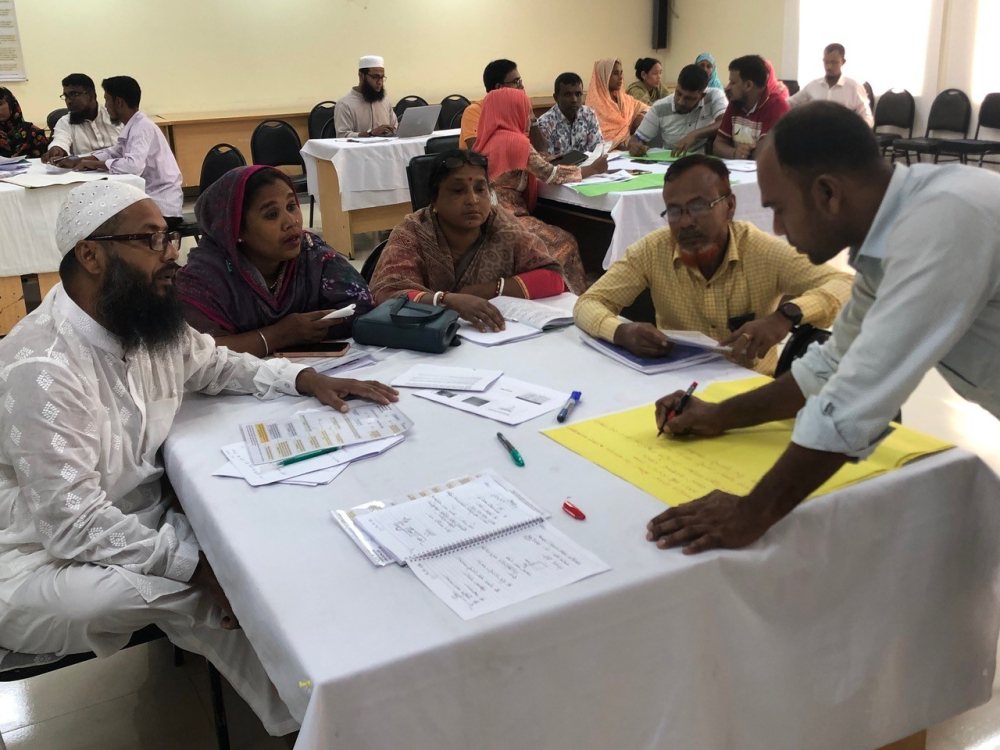
Translate information into adequate responses
Team leader Peter Prins (Senior Advisor Water for Agriculture, NWP) was impressed by the eagerness and drive of the participants. “The farmers’ leaders are willing to improve their practices and convey the information to their peers. They don’t have data on the salinity levels of their soil or irrigation water,” said Peter Prins, “but they observe symptoms such as bad seed germination or a sudden stagnation in the crop growth. In our course, we trained farmers to use tools to obtain data and to translate it into appropriate responses in the cultivation practices.”
We trained farmers to use tools to obtain data and to translate it into appropriate responses in the cultivation practices.
Peter Prins
Senior Advisor Water for Agriculture at NWP
Field training
Experts Arjen de Vos, Director at The Salt Doctors, and Tine te Winkel, Water Economist at Acacia Water, joined the delegation. They both have long track records of practical experience in Bangladesh. The NGO Cordaid, seed company Lal Teer and various Dutch Government-related organisations complemented the programme with valuable presentations. Field training was a crucial element in the set-up of the training. Tine te Winkel showed farmers the relevance of rainwater harvesting during the monsoon season. Tine explained that “Fresh water can be collected in basins or used for infiltration in sandy layers underground, as we’ve successfully proved in previous projects in Bangladesh. Since then, Acacia Water has started projects with managed aquifer recharge for agricultural purposes in the Netherlands.’’
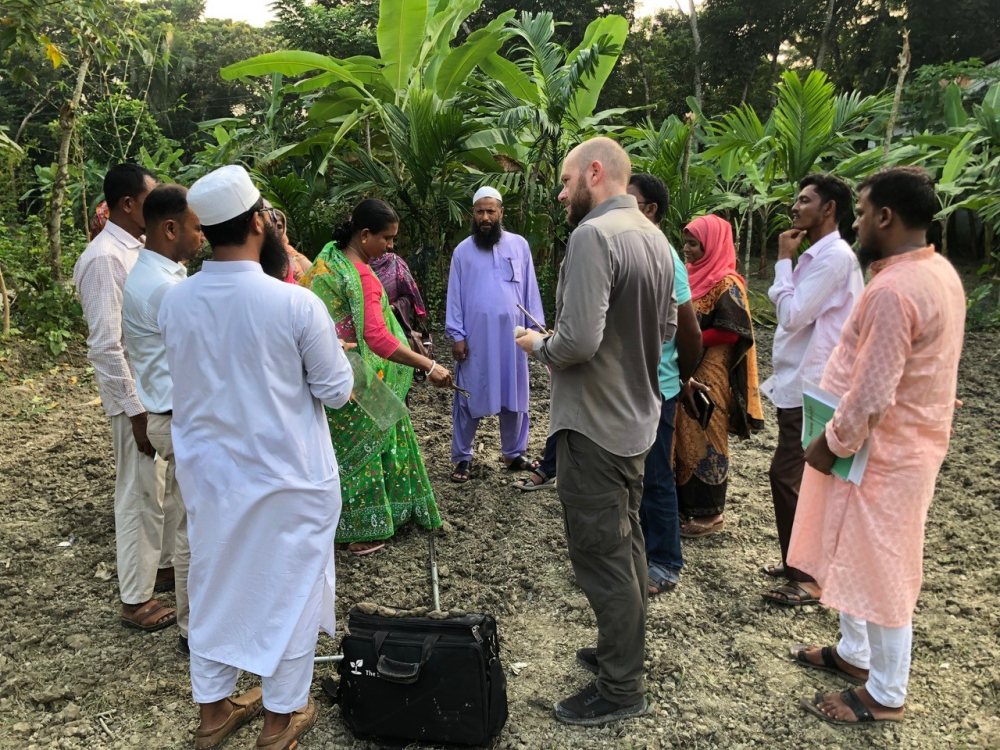
Knowledge dissemination hubs at a local level
Looking at the feedback of the farmers and co-organisers, and meetings with leading stakeholders at the national level, Netherlands Water Partnership concludes that comprehensive programmes with a strong focus on implementation would help farmers in Bangladesh mitigate the impact of salinity. Arjen de Vos sums it up. “We believe that knowledge dissemination hubs at a local level would foster the transition to resilient practices and alternative farming methods. Demos, for instance on tolerant crops or hydroponic systems, should be part of future programmes. Collaboration between Dutch and Bangladeshi partners has been fruitful in the past and will be key to a food-secure future.”
The training course on Saline Agriculture was organized in close collaboration with FAO Bangladesh, the national farmers’ organization SBKS and the Asian Farmers’ Association. Several Bengal knowledge partners such as DAE, BADC, SRDI, and Patuakhali Science and Technology University played a valuable role in the training sessions.
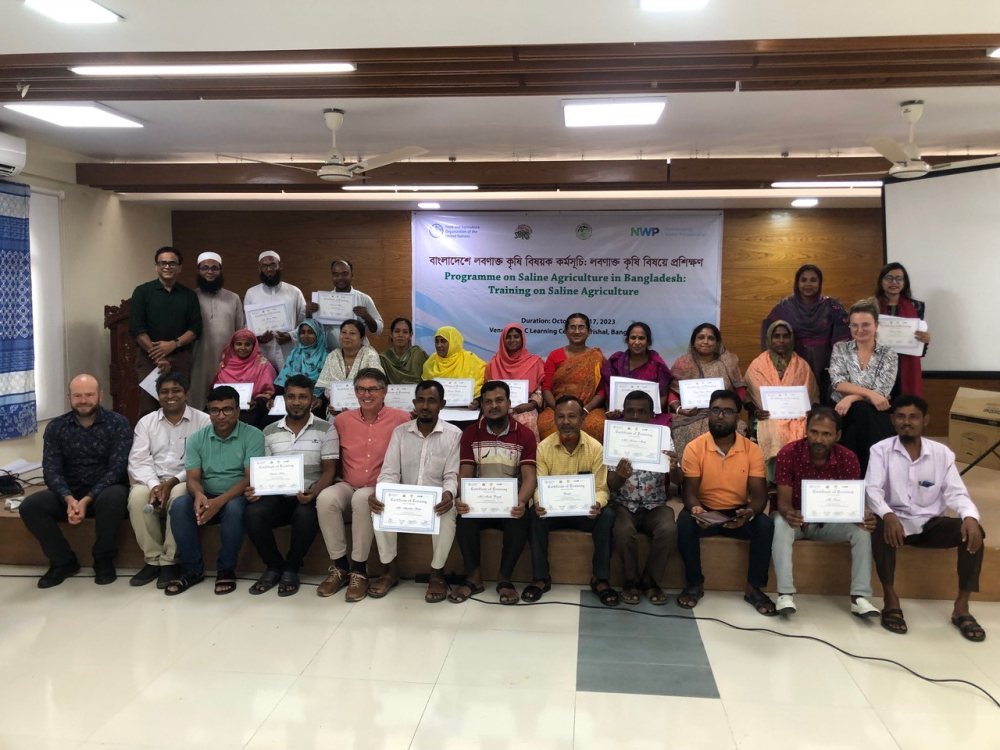
Catalyse the development of water-related business cases
The multi-year Water for Food Programme seeks to catalyse the development of water-related business cases in the agri-food sector through the cooperation of Dutch water sector players in consortia that focus on potential business cases in specific local markets internationally. This illustrates that business models can be achieved through adopting an integrated nexus approach and by focusing on the aspect of business cases. The longer-term objective is to establish a sustainable Water and Food hub that connects players in the water and agrifood sector to explore business opportunities and to bring successful pilots to the next stage of scaling up, replication, or adaptation to other regions. The Programme’s long-term objective is improved food security, sustainable water use, and protection of ecosystems and biodiversity. The multi-year Water for Food Programme was initiated by the Netherlands Water Partnership (NWP) and financed by the Dutch Ministry of Agriculture, Nature, and Food Quality.
Featured NWP members: Acacia Water
